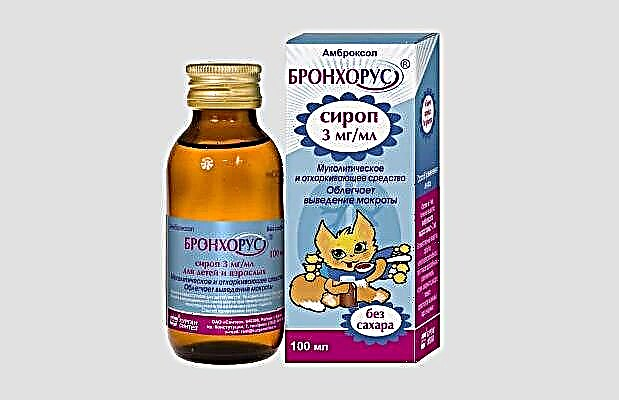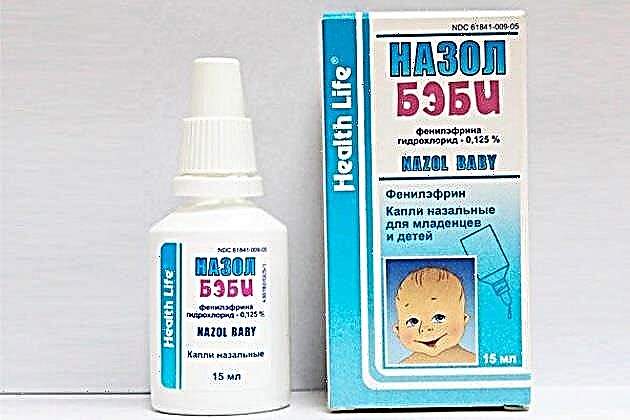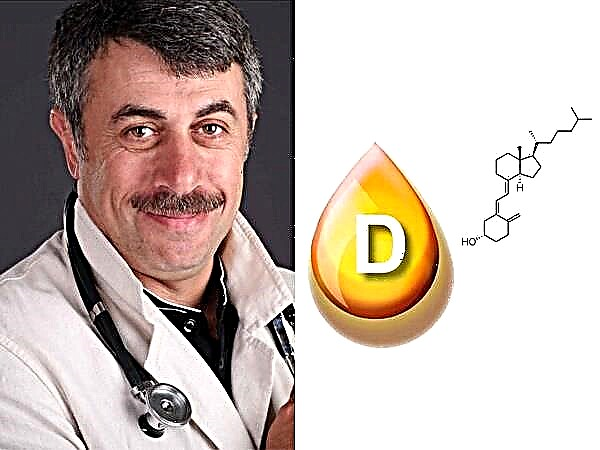
Children 4-6 years old move a lot, and also grow actively, therefore, their energy expenditure and needs for building material should be provided with a sufficient amount of food. Let's take a look at how many times a child of this age should eat, what kind of food should be prepared for children from 4 to 6 years old, and how to optimally build a menu.
The principles of good nutrition
A balanced menu for a preschool child is very important. It will not only provide the nutrients necessary for growth, but also support the functioning of the baby's entire body, including immunity.

The main nuances that parents of preschoolers should pay attention to are the following:
- The calorie content of food eaten by a 4-year-old child should be about 1700 kcal, for a 5-year-old child - about 2000 kcal, and for a six-year-old - about 2200 kcal.
- Daily calories are divided into meals in this way: 25% of calories for breakfast and for dinner, about 40% of calories for lunch and only 10% of calories for afternoon tea.
- It is especially important for a growing body to get enough protein - from 3 to 3.5 g per kilogram of weight. Protein-rich foods are cottage cheese, meat, eggs, fish, dairy products.
- Fats from food are no less important. Their child should consume about 3 grams per kilogram of body weight daily. The main intake of fats is provided by the inclusion of vegetable and butter in the baby's diet.
- Carbohydrates for preschoolers are the main source of energy. Their consumption rate is 15 g for each kilogram of the child's weight. Their sources are cereals, fruits, bread, vegetables, sweets.
- A preschool child should eat meat, bread, butter, dairy products, fruits and vegetables daily.
- Foods such as fish, cottage cheese and chicken eggs are given to the child 2-3 times a week.
- In a child's diet, it is worth minimizing the amount of food with artificial chemical additives. The simpler the ingredients used to prepare food for the baby, the healthier the meal will be for the baby.
A preschool child should not add vinegar, mustard, pepper, horseradish to dishes. They are irritating to the mucous membranes of the digestive tract.

Needs of a child 4-7 years old
A preschool child should receive the following products per day:
Fluid in the diet
Drinking regime is very important for a preschooler. A child should consume 60 ml of liquid for each kilogram of his weight. The optimal volume of drinking for a child of 4-6 years old is considered to be 1.5 liters. Let the child drink more ordinary water, but also in his diet may be fresh juices, weak tea, coffee substitute (chicory), compotes from dry, frozen or fresh fruits, jelly, sour milk drinks, milk. It is better not to give sweet carbonated drinks to the child.
What should not be included in the diet?
A child 4-6 years old should not be given:
- Very spicy food.
- Coffee.
- Fast food.
- Mushrooms.
Limit the use of a child of this age, chocolate, smoked meats, pickled dishes and pickles, sausages and sausages.

What are the best ways to cook food?
While 4-6 year olds can be fed fried foods, this treatment should be kept to a minimum for toddlers. The most optimal ways to prepare meals for preschoolers are called baking, steaming, stewing and boiling.
Diet
From the age of 4, the child has a four-day meal plan, which includes breakfast, a fairly hearty lunch, a small snack (afternoon snack), and also a not very plentiful dinner. Some children have extra snacks in the form of a second breakfast or meal before bedtime.
The child's nutrition should be organized so that the preschooler gets food at approximately the same time every day, even on weekends. You should not allow breaks longer than 4-6 hours. If a child goes to bed at 21 o'clock, then his dinner should be no later than 19-30.

How to compose a menu?
Thinking over the nutrition of the child during the day, you should try to provide all the needs of the baby and at the same time make the food of the preschooler varied and tasty:
- For breakfast, a child of 4-6 years old receives 250 g of the main course, which can be represented by porridge, a dish of cottage cheese, an omelet. Also for breakfast, a preschool child is usually given 200 ml of a drink and a sandwich.
- A preschooler's lunch usually includes 50 g of a vegetable salad or other snack, 200-250 ml of the first course, 60-100 g of meat or fish dish with 120-150 g of garnish, as well as a drink in a volume of 150 ml and up to 90 g of bread.
- For an afternoon snack, the child receives cookies, a bun, fruits, kefir, milk, jelly. The volume of the drink is 200 ml, and the volume of baked goods is 25-60 g.
- Cereals and vegetables are often the main course for dinner. The child receives this dish in the amount of 200 g. To him they give 40 g of bread and 150 ml of a drink.
- Combine dishes in the daily menu so that one type of food does not repeat during the day. For example, if there was porridge for breakfast, then offer vegetables for lunch as a side dish, and if there was a cereal side dish for meat for lunch, then dinner should include a vegetable dish.
- For dinner, avoid eating foods that are heavy to digest, such as meat or legumes.
- It is optimal to make a menu not for one day, but for a whole week, since some dishes are served only 1-3 times a week.
Sample menu for a week
A child aged 4-6 can eat for a week like this:
Recipe examples
Carrot and curd casserole
Wash and peel 200 g carrots, chop them into strips. Simmer in butter (10 g), add semolina (10 g) and cook until tender. Beat a raw chicken egg into the cooled carrot mass, add 80 g of cottage cheese and 2 teaspoons of sugar, mix. Place in a fireproof container, brush with sour cream (10 g) and bake until tender in the oven.

Fruit salad "Winter"
Wash one red apple, peel one banana, one grapefruit, and one orange. Cut all fruits and mix. If the salad is not going to be served immediately, do not add the banana (slice and lay before serving).
Pancakes with vegetables
Mix one egg, 6 g of sugar, a pinch of salt and 75 g of flour, add 150 ml of milk. From the resulting homogeneous dough, bake the pancakes and let them cool. Prepare the vegetable filling at this time. Chop white cabbage (150 g), onions (30 g) and carrots (120 g). Fry vegetables in vegetable oil (5 g) until soft and add a little salt. Put the minced vegetables on the center of the pancake, wrap it in an envelope and lightly fry in a pan.
Possible problems
Insufficient consumption of fresh vegetables and fruits by a preschooler can cause constipation. Raw plant foods are good for digestion and strengthening the child's immunity, so parents should make sure that such food is on the children's menu.

Most children of this age have already formed certain tastes and preferences, and children categorically reject some dishes. Don't force your child to eat foods they don't like. For a while, exclude "rejected" dishes from the diet altogether, and over time offer again.
If the child has no appetite, first find out if there are objective reasons for this. Perhaps the previous meal was too satisfying, the room is very hot, the child is sick or in a bad mood. Wait until the appetite appears, but you do not need to force to eat. Not only can this cause a negative reaction to food intake, but it can also worsen the baby's digestion.
In which children, on the contrary, appetite is increased. But you don't need to rejoice at the child's desire to eat large portions. This can cause excess weight gain, limitation of the baby's mobility, curvature of the spine, the risk of stones and other health problems. If your child has already gained weight, consult a pediatrician to adjust both the baby's nutrition and daily routine.
Tips
From 4 years old, you can involve a child in cooking. A child 4-6 years old can be instructed to stir cream, cut vegetables, sculpt pies, wash greens and root vegetables, peel peas and much more. It will also be interesting for the child to watch how the mother makes yogurt, cuts fish, decorates the pie.

Some useful tips:
- Buy only fresh and high quality food for your child. Always keep an eye on the expiration dates of the food your preschooler eats. It is best to prepare fresh food for a child of this age every day.
- If the child goes to kindergarten, find out the menu in order to supplement the baby's diet with missing products in the evening, and also so that your dinner does not repeat the dishes of the garden menu of the same day.
- For a child attending sports sections, the amount of proteins and carbohydrates in the day menu should be increased. It is important to ensure that the child does not go hungry for training, and also does not eat immediately after the load. Immediately after training, it is advised to drink sweet fruit juice.
Read about the need to provide children with enough vitamins in other articles:
- vitamins for children from 4 years old;
- vitamins for children from 5 years old;
- vitamins for children from 6 years old.



